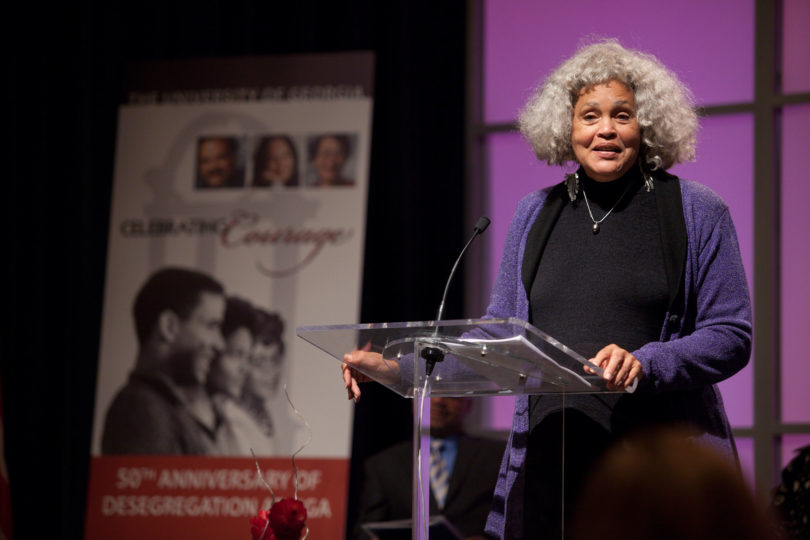Journalism means getting personal-and being fair. That was a central message delivered by one of UGA’s first two black students as she discussed her autobiography In My Place with students and faculty members on March 22.
“In our journalism schools, we teach the term objectivity, which I am going to go on a crusade against,” said Charlayne Hunter-Gault from the Grady College of Journalism and Mass Communication. “Your computer can be objective because it doesn’t have a heart. It doesn’t have personal history. But all of us have hearts and personal histories, so we can’t be objective. I prefer to say that we have to be journalists who are fair and balanced.”
Fielding questions from Grady students, Hunter-Gault, who still writes regularly for media outfits like The New Yorker and
AllAfrica.com, offered career advice, recounted stories of some of her most famous interviews and explained how she came to write a book about her time in Athens.
“No matter what the story is, you have to sit down and make it good. You have the capacity to get excited over anything,” she said. “Even as we experience new waves of communication-even in blogs. Don’t give up good communication. The basics are not going to change no matter what the vehicle is for it. You’ve got to inform people.
“When I sat down to write this book, I had just come back from where hundreds of people-not millions yet-hundreds had met Nelson Mandela. He had just been released from jail, and I had made my way from New York City to South Africa to see him,” she added. “When I came back, I thought to myself that I had just covered the biggest story of my life and if there was any time for me to take a break and write an autobiography it would be now.”
But Hunter-Gault was never content to be defined by her role in integrating UGA. Even in the 1960s, she had an eye trained toward her future as a reporter.
“We never set out to make history. I’m sure the lawyers involved in winning our case focused on a bigger picture, but what saved us, or what saved me, was that I was focused on becoming a journalist. I truly was,” she said. “I would like to say that I wanted to become a civil rights hero and a civil rights symbol, and it’s so nice when people call me that. But I’m so humbled, because that’s not what I set out to do. And the rest, as they say, is history.”





